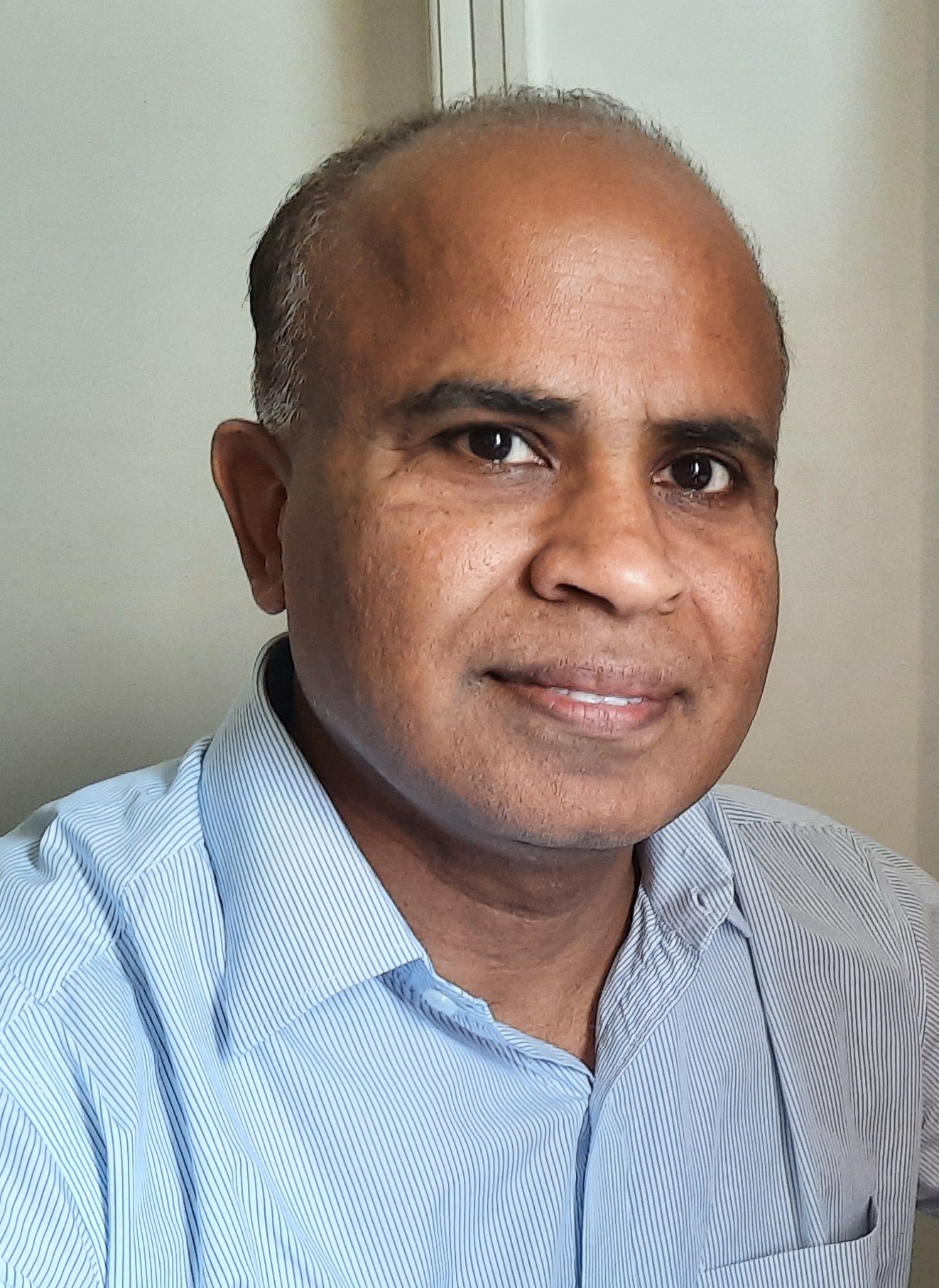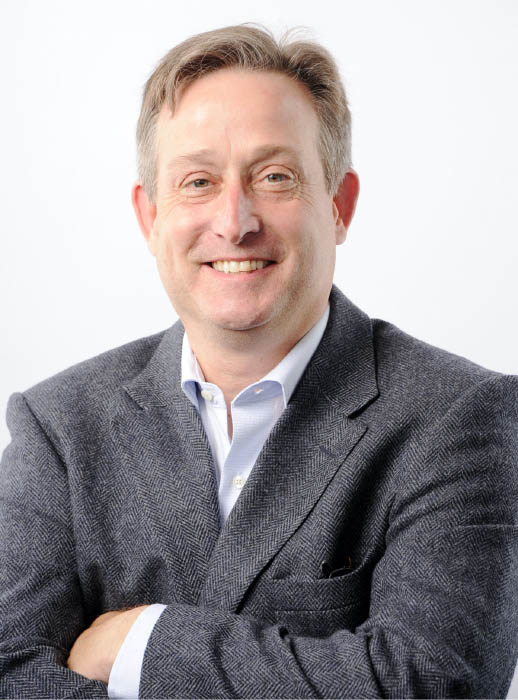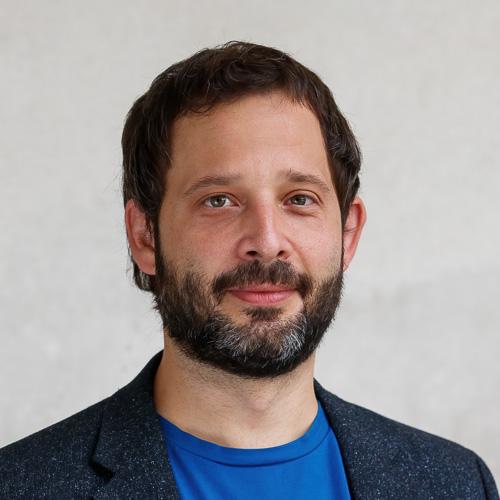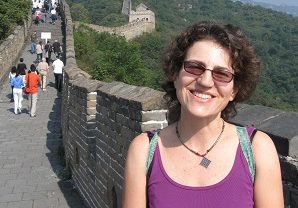Meet our Peer Review Ambassadors
Our Peer Review Ambassadors are senior researchers who have a wealth of experience peer reviewing manuscripts in the physical sciences and a passion for training the next generation of reviewers. The Ambassadors co-chair our popular Peer Review Excellence workshops for physical sciences researchers around the world. If you are interested, you can sign up to attend a workshop.

Igor Aharonovich, Professor in the School of Mathematical and Physical Sciences, University of Technology Sydney, Australia
Igor Aharonovich is an award-winning scientist working on cutting-edge research into quantum sources that are able to generate, encode and distribute quantum information. A Professor in the School of Mathematical and Physical Sciences at UTS, Igor investigates optically active defects in solids, with the aim of identifying a new generation of ultra-bright solid state quantum emitters. His contributions to the field include the discovery of new colour centres in diamond and hexagonal boron nitride, and the development of new methodologies to engineer nanophotonic devices from these materials.

Govindasamy Bala, Professor of Atmospheric and Oceanic Sciences, Indian Institute of Science, Bengaluru, India
Prof. Bala is a Professor at the Centre for Atmospheric and Oceanic Sciences, Indian Institute of Science, Bengaluru, India. His main research interests are modelling of climate change, climate system feedbacks, carbon and water cycles, solar geoengineering, and the global and regional monsoon systems.
Prof. Baa has served as a Lead and Contributing Author in the 5th and 6th scientific assessment of climate change by the IPCC and is currently a member of the Earth Commission.

Jonas Baltrusaitis, Associate Professor, Chemical & Biomolecular Engineering, Lehigh University
Jonas is a highly regarded expert in sustainable catalytic conversion, whose research focuses on identifying and developing an understanding of the fundamentals of heterogeneous catalytic processes with particular emphasis on optimum catalyst design. He is currently part of a research group investigating ways to recycle CO2 emissions into liquid fuel. He has authored over 130 peer-reviewed manuscript and is the Editor-in-Chief of Sustainability Science and Technology.

Joachim Behar, Assistant Professor, Machine Learning and Artificial Intelligence in Medicine, Technion Israel Institute of Technology
Dr Behar is head of the Artificial Intelligence in Medicine Laboratory (AIMLab) at the Israel Institute of Technology. The lab focuses on the use of machine learning in medicine within the context of physiological time series analysis with a specific focus in sleep medicine and cardiology.
Dr Behar is twice winner of the MIT-PhysioNet/Computing in Cardiology competition. He is on the editorial board of the journal Physiological Measurement.

Peter Charlton, British Heart Foundation Research Fellow, Department of Public Health and Primary Care, University of Cambridge
Dr Charlton is a Research Fellow in the Department of Public Health and Primary Care at the University of Cambridge. He specialises in signal processing for wearables, developing techniques to obtain physiological data accurately from the signals measured by smart wearables, so that the data can be used for clinical decision making.
Dr Charlton is twice winner of the Martin Black Prize for the best paper published in IOP’s Physiological Measurement journal and sits on the same journal’s Executive Editorial Board.

Paul Cooper, Editorial Manager, Electrochemical Society, Pennington, NJ USA
Paul Cooper is Editorial Manager at The Electrochemical Society, where he works with the editorial boards of their four archival scholarly journals to deliver an efficient, substantive peer-review of over 4500 papers per year.
A non-scientist, Paul started out as a copy-editor over 30 years ago and quickly developed a passion for the promotion and dissemination of physics and chemistry-based research, which led to print and online journals production roles. A mid-career move to a remote position gave Paul the opportunity to focus on the peer-review process, peer-review ethics, and the author and reviewer experience.

Bert de Jong, Senior Scientist of Applied Computing for Scientific Discovery, Lawrence Berkeley National Laboratory, USA
Bert de Jong is a senior scientist at Lawrence Berkeley National Laboratory, where he leads the Applied Computing for Scientific Discovery Group, which advances scientific computing by developing and enhancing applications in chemistry, materials and biology, as well as developing tools and libraries for addressing general problems in computational science.
Specifically, his research focused on developing exascale computational chemistry software, novel machine learning approaches for inverse design, and the development of algorithms and software for quantum computing. de Jong is the Founding co-Editor-in-Chief for the IOP journal Electronic Structure.

Marta Cavagnaro, Associate Professor of Electromagnetic Fields, Sapienza University of Rome, Italy
Marta Cavagnaro research activity is mainly devoted to dosimetric aspects of the interaction between electromagnetic fields and biological systems, with reference to both medical applications and regulatory aspects.
Her interests include techniques for therapeutic use of microwave energy, as microwave thermal ablation and hyperthermia, UWB radars for the monitoring of cardio-respiratory activity, dielectric properties of biological tissues. In the research, both numerical and experimental approaches are used. The numerical studies are conducted both with custom-made codes and commercial full wave software.

Andrew Chapman, Associate Professor, Kyushu University, Japan
Andrew is an Associate Professor at the International Institute for Carbon Neutral Energy Research (I2CNER) at Kyushu University in Japan. He teaches Energy Economics, and his research focuses on the social equity impacts of the transitioning energy system. As principal investigator in the Multiscale Engineering and Energy for the Environment thrust at I2CNER, Andrew is focused on developing feasible energy systems for the future which can achieve carbon neutrality targets while also contributing toward economic and social goals.

Luis E. F. Foà Torres, Associate Professor of Condensed Matter Physics, University of Chile, Chile
Luis is a condensed matter physicist and besides his duties he has been serving many journals and research agencies worldwide. In 2018 he has been listed as Outstanding Researcher of the American Physical Society.
He currently serves as editorial board member of Journal of Physics Materials, as editorial fellow of SciPost, and as Divisional Associate Editor of Physical Review Letters.

Penny Gowland, Professor of Physics, University of Nottingham, Nottingham, UK
Professor Gowland’s research focuses on development of quantitative MRI for biomedical applications. She is particularly interested in exploiting the capabilities of functional and anatomical ultra-high field MRI, in using the increased contrast to noise ratio available at ultrahigh field to study ‘single trial’ fMRI of brain function, and in developing techniques to probe the origin of the BOLD effect which is responsible for fMRI.
Penny is also the physics lead on a unique interdisciplinary project which has developed MRI methods to study many aspects of gastrointestinal (GI) function; this could revolutionise the diagnostic pathway for patients with GI problems. She has a strong interest in applying quantitative imaging methods to studying human development, particularly in the foetus. Finally, Penny has taken a particular interest in studying the safety of MRI.

Emily Grubert, Assistant Professor of Civil and Environmental Engineering, Georgia Tech, USA
Dr Grubert’s research focuses on how we can make better decisions about large infrastructure systems, with a particular focus on societal priorities and energy and water systems in the US. Her major methods include life cycle assessment and interview and survey research. She holds a PhD in Environment and Resources from Stanford University.

Professor Robert Kelly, AT&T Professor of Engineering, University of Virginia, Virginia, USA
Professor Kelly has been conducting research on the corrosion of metals for the past 30 years. His present work includes studies of the electrochemical and chemical conditions inside localized corrosion sites in various alloy systems, corrosion in aging aircraft, and multi-scale modeling of corrosion processes. He has co-authored over 150 papers, presented 100 invited talks, and is the Co-Director of the Center for Electrochemical Science and Engineering at the University of Virginia.

Akhlesh Lakhtakia, Professor of Engineering Science and Mechanics, Pennsylvania State University, Pennsylvania, USA
Professor Lakhtakia is Evan Pugh University Professor and Charles Godfrey Binder Professor of engineering science and mechanics at the Pennsylvania State University. His research focuses on electromagnetic fields in complex materials, such as sculptured thin films, chiral materials, and bianisotropic materials; optoelectronic modelling of thin-film solar cells; and industrially scalable bioreplication, an emerging form of engineered biomimicry applied to harvesting of solar energy and pest eradication.

Tafadzwa Mabhaudhi, Research Group Leader, International Water Management Institute, South Africa
Tafadzwa Mabhaudhi is a Research Group Leader: Sustainable and Resilient Food Systems at the International Water Management Institute (IWMI) and an Honorary Professor at the University of Nottingham (Malaysia) and University of KwaZulu-Natal (UKZN). Tafadzwa has experience in research, development, capacity building and building partnerships across academia, public and private sectors, civil society, and communities. He conducts multi- and transdisciplinary research covering sustainable and resilient food systems, global environmental change, and the water-energy-food nexus. His goal is to work on transformative research and development that builds capacity and informs policy and practice in the global South.

Subhas Mukhopadhyay, Professor of Mechanical/Electronics Engineering, Macquarie University, NSW, Australia
Prof Mukhopadhyay is the Discipline Leader of the Mechatronics Engineering Programme and the Director of International Engagement for the School of Engineering at Macquarie University, New South Wales, Australia. His fields of interest include sensors and sensing technology, instrumentation, wireless sensor networks, Internet of Things, mechatronics, and robotics.
He is also a prolific peer reviewer and holds editorial board positions on a number of journals.

Piero Nicolini, Professor of Classical and Quantum Gravity, Frankfurt Institute for Advanced Studies and Johann Wolfgang Goethe-Universität, Frankfurt, Germany
Prof Nicolini is a leader in the field of quantum gravity, black holes, and cosmology. He has contributed to the solution of the long standing issue of the curvature singularity of classical spacetimes and is known for having first proposed noncommutative geometry as a tool for studying evaporating black holes beyond the semiclassical limit.
He has authored a large number of highly cited papers in theoretical physics, and is also an editorial board member on eight international journals. He is a prolific peer reviewer with a great deal of expertise.

Peter-Paul Pichler, Deputy Lead, Potsdam Institute for Climate Impact Research, Germany
Peter-Paul Pichler is deputy lead of the FutureLab Social Metabolism and Impacts at the Potsdam Institute for Climate Impact Research. As a social ecologist, he focuses on the economic, geographic, and sectoral distribution of energy use and greenhouse gas emissions, for example in international health care systems.
He is particularly interested in the material and political conditions that enable prosperity for all within planetary boundaries through a deep democratic social-ecological transformation. Peter Paul Pichler serves on the editorial board of Environmental Research: Climate and the executive committee of the Lancet Planetary Health Commission on Sustainable Healthcare.

Nini Pryds, Professor of Functional Oxide Materials, Technical University of Denmark, Copenhagen, Denmark
Nini Pryds is a Professor and head of the ‘Functional Oxide Materials’ research section at the Department of Energy Conversion and Storage, The Technical University of Denmark (DTU), where he leads a group of 30+ researchers working in the field of Energy and information technology such as, memristors, piezoelectricity, thermoelectricity, electrostriction and functional oxide thin films.
He has made major contributions in emerging disciplines such as Nanoionics and Iontronics, dealing with the design and control of interface-related phenomena in fast ionic and electronic conductors.

Yi-Kang Pu, Professor of Plasma Physics, Tsinghua University, Beijing, China
Prof Pu is a leader in the field of low temperature plasma physics and has published a large number of influential manuscripts. Prof Pu received his PhD from MIT in 1989; his PhD was on theoretical analysis of instabilities in fusion plasmas.
He started studying low temperature plasmas in 1988 with an interest in both modeling and diagnostics. He has severed as a committee member for many scientific conferences and has been an editorial board member for Journal of Physics D, IOP SciNotes, and Review of Modern Plasma Physics for many years.

Ursula Scharler , Professor at the School of Life Sciences, University of KwaZulu-Natal, Durban, South Africa
Professor Scharler’s research focuses on marine biology and systems modelling, and she holds several editorial positions for journals, including IOP’s Environmental Research Letters, books and works of reference.

Ujjwal Sen, Professor of Physics Division, Harish-Chandra Research Institute, Allahabad, India
Professor Sen works on quantum information and computation, and its interface with some other areas. He did his Masters in Kolkata and PhD in Gdansk. He was a Humboldt fellow in Hannover and a Ramon-y-Cajal fellow in Barcelona. He was briefly at IIT Delhi, before taking his current role in Allahabad.

Krishnendu Sengupta, Professor of Theoretical Physics, Indian Association for the Cultivation of Science, Kolkata, India
Professor Sengupta’s research focuses on developing theoretical understanding of driven quantum systems, with emphasis on phenomena such as topological properties of driven states, dynamical transitions in these driven systems and possible routes to violation of Eigenstate Thermalization Hypothesis in them.
In 2012, Prof Sengupta was awarded the Shanti Swarup Bhatnagar Prize for science and technology. He is a Fellow of Indian Academy of Sciences, f National Academy of Sciences, and Indian National Science Academy and has served as the Indian council member of Asia Pacific Centre for Theoretical Physics.

Susannah Speller, Professor of Materials Science, University of Oxford, UK
Susie is a Professor of Materials Science at the University of Oxford. She has over 20 years of research experience in the field of applied superconductivity and leads the Superconducting Materials group in the Oxford Centre for Applied Superconductivity.
She is currently the Letters Editor of Superconductor Science and Technology and has recently written a book called “A Materials Science Guide to Superconductors: and how to make them super,” aimed at introducing superconductors materials to the general public.

Huaixin Yang, Professor, Director of Academic Services Department, IOP, CAS
Yang has applied advanced TEM techniques to investigate the intimate correlations between the microstructure and physical properties of important functional materials. In recent years, her research group has focus on the high spatiotemporal resolution electron microscopy development and structural dynamics investigation. As an author of 180 publications in academic journals , Yang possesses extensive experience in reviewing journal articles.